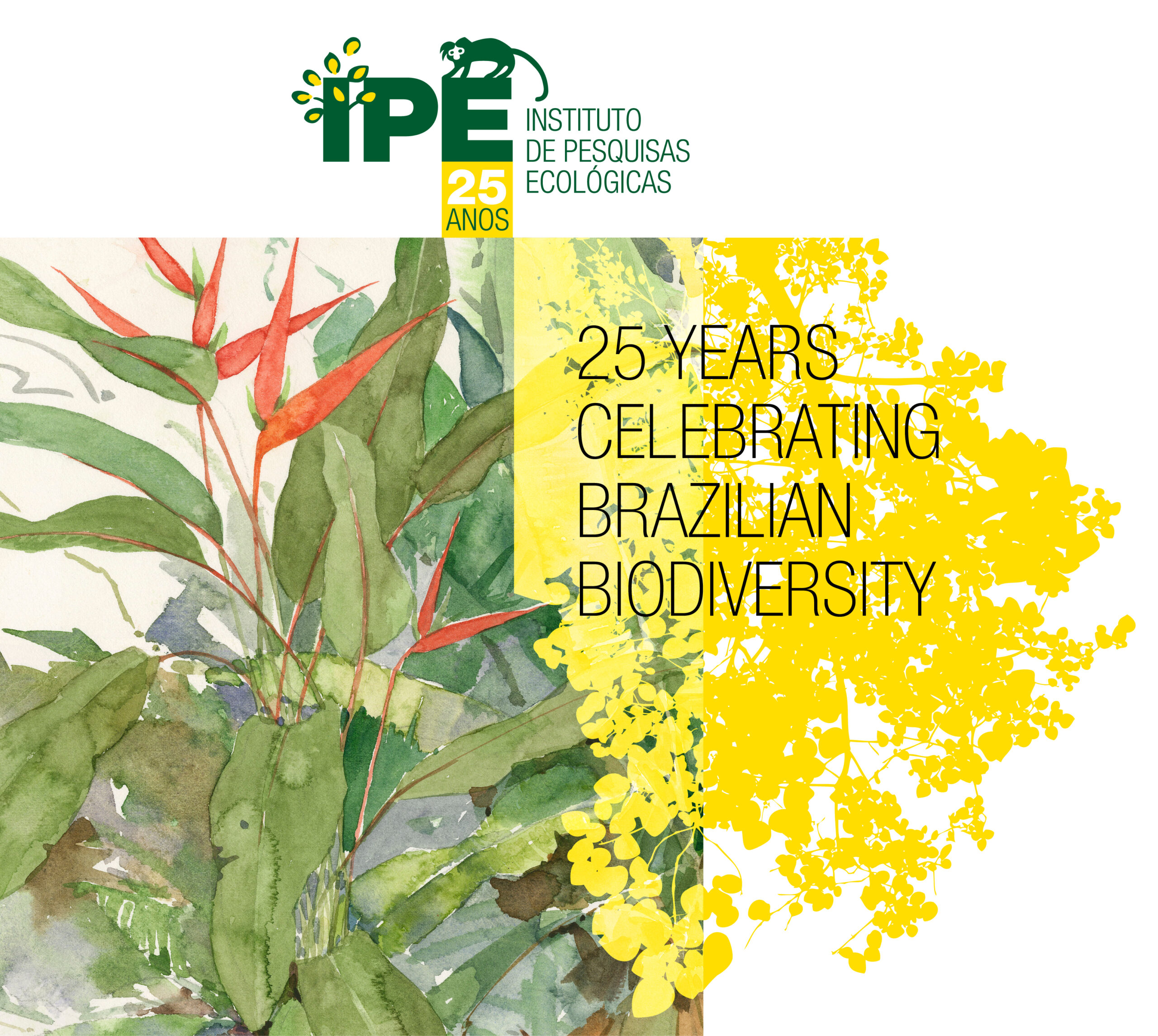::cck::227::/cck::
::introtext::
The year was 1992. Rio de Janeiro was at the center of the world’s attention. Twenty years after the first UN Conference (ECO-72), it was here, in Brazil, that many countries would discuss again the future and the measures needed to protect life on our planet. Two decades after the Stockholm event, the world had changed and the threats to the environment had increased significantly. The Rio-92, or ECO-92, attracted more than 22,000 people. The discussions that year would impact global agreements going forward, including those related to climate and biodiversity. In the warm-up for the event, Brazilian environmentalists prepared themselves to participate in the discussions that took place and to find a way to influence decisions. The pre-ECO-92 movement was intense and launched innumerable initiatives in governments and in the civil society, which aimed at building a socio-environmental agenda for the next century. In a way, everyone there knew that it was an historical moment and it was incredible to participate in all that was happening.
We were in this cauldron of initiatives: a small group of young environmentalists, full of ideas and willing to change a world that was no longer a favorable place for forests and their inhabitants. We were mostly university students or recent graduates in biology, veterinary and forest engineering, who followed the intuition and dreams of two entrepreneurs who had within them an immense desire to transform the environmental reality in Brazil. At that time, we had been carrying out conservation projects through the universities where we studied. However, to generate the impact we envisioned, it was time to organize ourselves as a civil society institution. We chose to be become IPÊ – Instituto de Pesquisas Ecológicas (Institute for Ecological Research), a name apparently simple, but sufficiently ambitious to carry so many dreams, and as beautiful and strong as a yellow ipe, the flowering tree symbol of Brazil.
Rio-92 ended, bringing all its important results to the world, and we continued with our projects, acting locally and expanding our research. The approaches and knowledge in environmental conservation and sustainability have evolved over time, but from the beginning there was a set of principles and pillars that underpinned our actions, making IPÊ differ from other organizations of that time, while attempting to achieve its mission of protecting biodiversity.
Our understanding has always been that the conservation of biodiversity is an ethical commitment we have with the planet and with humankind. The impact of research on species conservation (which gave rise to our institution) goes far beyond the contribution to improve their conservation status on Red lists. Our approach contemplates the need to improve the living conditions of humans and foster their harmonious relationship with the planet. This reasoning resulted from practical learning over the years. There were no formulas to make conservation in Brazil effective, so we sought ways to act that guaranteed us a certain freedom to innovate and, as a result, to have a number of stumbling blocks, but also great successes. As we progressed, we realized that without the human involvement it would be impossible to do science and conservation. It was with this understanding that we evolved to seek biodiversity conservation through approaches that keep in mind the need to improve the living conditions of human beings and stimulate their harmonious relationship with their local environment and with the planet.
Today, we do applied-scientific research and seek innovation in how we deal with environmental and social challenges. Education, for example, permeates all our actions and has become a vector for disseminating good practices that emerge from our projects and from our network of partners and collaborators. Additionally, we hold dialogues with various stakeholders, representatives from different segments of civil society, government and the private sector, seeking ways to link entrepreneurship to conservation efforts.
IPÊ’s power of transforming people’s lives and making the conservation of social and environmental resources happen is only possible because we understand that the great wealth of our organization is in the people who compose our team, which has grown! From that small group in 1992, with less than 10 people, we now have a team of about 80. The same young spirit of a few decades ago and our values still attract those who want to grow and develop together with the organization. The opportunities that arise from this environment motivate professionals to make their dreams come true and, at the same time, produce impacts that we are proud to remember. And in 25 years of existence, even though we still have much to do, we have significant achievements for the fauna we work with, for the landscapes where we are and for society as a whole, which certainly has already made a difference in our world.
For example, despite all the increasing pressures on the Atlantic Forest, the black lion tamarin has improved its conservation status from “critically endangered” to “endangered” on the IUCN Red List of Threatened Species, due to IPÊ’s research, education and community involvement activities, with the support of national and international partners. Our studies in the Atlantic Forest, Pantanal and Cerrado have allowed us to form the world’s largest database on the Brazilian tapir, in addition to having unprecedented data on the giant armadillo, a rare and endangered species.
The scientific basis on which we have always based our work is the guiding backbone for the creation of strategies to protect these species and to inspire us to other actions. One of these successful strategies is what we call the “Dream Map of the Pontal do Paranapanema.” Its gradual implementation resulted in the largest forest corridor ever restored in Brazil, enabling the movement of fauna from one forest fragment to another in the Atlantic Forest, which now contributes to the survival of vulnerable and threatened species. In the 15 years since we started planting this corridor, seeing the animals using the new forested areas is a reason for celebration. It is also in the Atlantic Forest that we develop research and plan initiatives to improve the landscape that influences the conservation of the Cantareira System (the most important water system in Brazil), home to a great number of species, and strategic for providing water resources for the State of São Paulo. In the Amazon, our work has strengthened a mosaic of protected areas in the lower Rio Negro and generated a positive impact on the Federal Conservation Areas, places of unique socio-environmental richness that no one has yet been able to measure in its entirety.
Another impact for which we pride ourselves is to make our environmental messages reach more than 10,000 people every year, whether through sound environmental education programs that influence public education in various cities, or through rural extension, which supports the transformation of agricultural production into a more sustainable practice. We also reach out through our School of Environmental Conservation and Sustainability (ESCAS), where more than 6,000 students have already studied, and who today are amplifying their learning and influencing the socio-environmental transformation in Brazil and around the world.
It is important to recognize that we haven’t done all of this on our own. Students, donors, funders, supporters, board members, peer institutions and communities have always been instrumental in this process involving growth, evolution and results. The impact generated by our work derives from the people who believe in our projects, not only because they benefit from them, but because they have embarked on our dreams that are theirs now too. Partnerships with various sectors have allowed us to get where we are, and we are deeply grateful to all of them. Our greatest commitment is to remain attentive to keep up the excellence of the work that we do so we can deliver more and more results to society and to the planet in general.
We celebrate our 25 years of existence confident we are on the right track, contributing to the social and environmental transformation in Brazil, and with the certainty that our dreams and the desire to change realities for the better are still very much alive within us, in the new generation of people who we have developed, and in all the partners who are with us on this mission. Every new year is a reason to renew the passion, the grit and the determination with which we began this journey. May we celebrate this date and the life we inherited from the planet for many other years to come.
::/introtext::
::fulltext::::/fulltext::
::cck::227::/cck::


